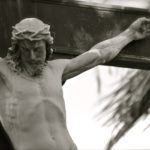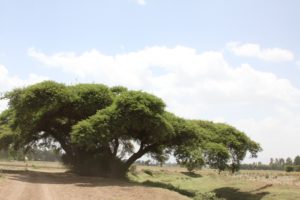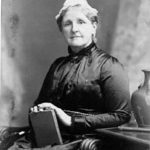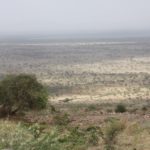 Jesus asked his disciples, “Who do people say that I am?” And they said, “Some say John the Baptist, others say Elijah, and others Jeremiah or one of the prophets.” (Matthew 16:13-14, ESV)
Jesus asked his disciples, “Who do people say that I am?” And they said, “Some say John the Baptist, others say Elijah, and others Jeremiah or one of the prophets.” (Matthew 16:13-14, ESV)
If Jesus were to ask that same question today, the answers might be, a religious leader, a healer, or even a fake. He is often put on a level with Mahatma Gandhi as an advocate of peace; with Mother Teresa as a bringer of love; with Mohammed as a prophet. Most people who have any understanding of the historical Jesus say that he was, at the very least, a good teacher.
C.S. Lewis, of course, seeks to dispel that misconception by his famous “Lord, liar, or lunatic” argument (see the Preface to his book, Mere Christianity). His basic argument: given the incredible claims Jesus made about himself, he could only be a deluded lunatic, a pathological liar…or exactly who he said he was: Lord.
There is no doubt that Jesus was what so many believe of him: a good teacher, a prophet, a healer. He epitomized love for the outcast and spoke wisdom that shut the mouths of religious and political authorities alike. But if that is all he was, his impact on the world is all but over and done. Sure, his followers (most, anyway) continue to promote his message of love and peace, continue to seek the good of their communities and the world. But that’s about it. Hope ends there.
Recently I came across this verse: “…through one righteous act there is justification leading to life for everyone.” (Romans 5:18, Christian Standard Bible)
For some reason, those three words—one righteous act—stopped me in my tracks. Just one thing made the difference between a good but ultimately meaningless life, and a life of ultimate purpose and eternal impact.
What was that one righteous act? His death. The cross.
Sit with that thought for a few moments. It is, after all, Good Friday—the day Christians around the world remember Jesus’ sacrifice. We look forward to Easter, of course, but you can’t get to Resurrection Sunday without going through Good Friday. Or silent Saturday, a day of grieving, wondering, waiting…for God knows what? So just sit with the reality of the cross, of a torturous death.
Sit with the truth that, but for Jesus’ sacrifice, we would have no hope beyond this life (which, you have to admit, has been challenging the past few years). Just one righteous act made possible justification leading to life for everyone. Life. Justification—a big word that simply means the slate has been wiped clean.
Jesus’ one righteous act demands just one righteous act in return. To lay claim to that gift—life, justification—you need only believe.
If you confess with your mouth, “Jesus is Lord,” and believe in your heart that God raised him from the dead, you will be saved. (Romans 10:9-10, CSB)
Just one righteous act.

 But blessed are those who trust in the LORD
But blessed are those who trust in the LORD My knowledge of God … advanced slowly through many stages, and with a vast amount of useless conflict and wrestling, to the place where I … discovered to my amazement and delight His utter unselfishness, and saw it was safe to trust in Him. –Hannah Whitall Smith (emphasis mine)
My knowledge of God … advanced slowly through many stages, and with a vast amount of useless conflict and wrestling, to the place where I … discovered to my amazement and delight His utter unselfishness, and saw it was safe to trust in Him. –Hannah Whitall Smith (emphasis mine)
